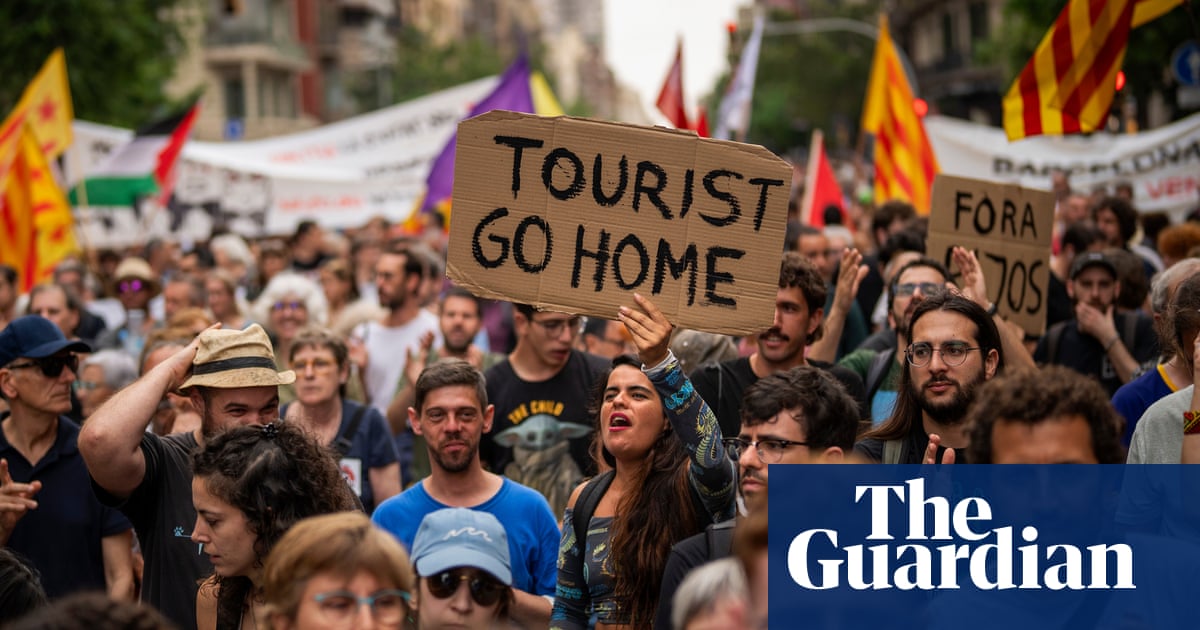Europe’s biggest travel operator, Tui, has hit back at an accusation byAirbnbthat “overtourism” is the fault of the hotel industry, arguing that short-term home rentals companies are instead to blame.
Tensions have risen between rivals in the tourism industry afterprotestsby local people against overcrowding, rising housing costs and bad behaviour by tourists in some holiday hotspots across the continent.
Theo Yedinsky, vice-president for public policy at Airbnb, said in an interview that the company was being unfairly blamed and being made a “scapegoat” by local authorities and protesters.
“We end up getting a lot of the blame, especially in city centres but the reality is overtourism is really driven by hotels,” Yedinskytold the Financial Times. “It is totally unfair. They are scapegoating Airbnb.”
Protests by residentshave broken out in destinations including Barcelona, Palma de Mallorca,Venice, Amsterdam and the Greek island of Santorini.
Authorities have taken action targeting the booming short-term lettings sector – led by services such as Airbnb, Vrbo andBooking.com– in an attempt to alleviate a problem exacerbated by the post-pandemic boom in travel.
Alexander Panczuk, group director of policy and reputation at Tui, said: “It is not scapegoating, it is a very neutral analysis of the problem.
“The reason protesters hit the streets is because of issues with the cost of living and especially housing. Both are driven by the secondary home market and short-term leases. All the destinations where we have seen the conflict of tourists and living spaces in the last few years are not where [operators like] Tui are active.”
Last month, the Spanish government ordered Airbnb to remove nearly 66,000 listings from its platform; in Portugal new short-term rental licences in Lisbon have been suspended, and earlier this year Greece introduced a one-year ban on new short-term rental registrations in Athens.
Hotrec, the European hotel industry’s lobby group, said the sector was highly regulated by authorities to fit with tourism capacity, and that services such as Airbnb needed to “play by the same rules”.
Hotels accounted for 63% of overnight visitors in Europe last year, while apartments, vacation rentals and other short-term rentals made up 24%, and campsites 13%, according to Eurostat data.
While the estimated number of overnight stays in hotels rose by less than 4% year-on-year in 2024, the short let market surged by 8%, an increase of 57m.
Yedinsky argued that the targeting of services such as Airbnb by governments has not improved the situation because most of the issues do not stem from short-term rentals.
Sign up toBusiness Today
Get set for the working day – we'll point you to all the business news and analysis you need every morning
after newsletter promotion
Citing the example of Barcelona, he said the mayor “needs to look at the construction of hotels, he needs to look at hotels in general … and they need to build more housing”.
“They are attacking a fraction of the problem and then wondering why it’s not getting better,” he said.
However, Tui, whichhad 20.3 million customers book its various holiday services last year, said local authorities were not trying to shift the blame.
Panczuk said: “Knowing the destination policy stakeholders they are mainly interested in solving their issues, not scapegoating as if it’s an easy answer to their problem.
“We talk a lot with our destination partners, ministers and MPs from various destinations, and it is mainly about [the issues] with holiday rentals. It is a topic that is discussed a lot because there is a real problem.”
